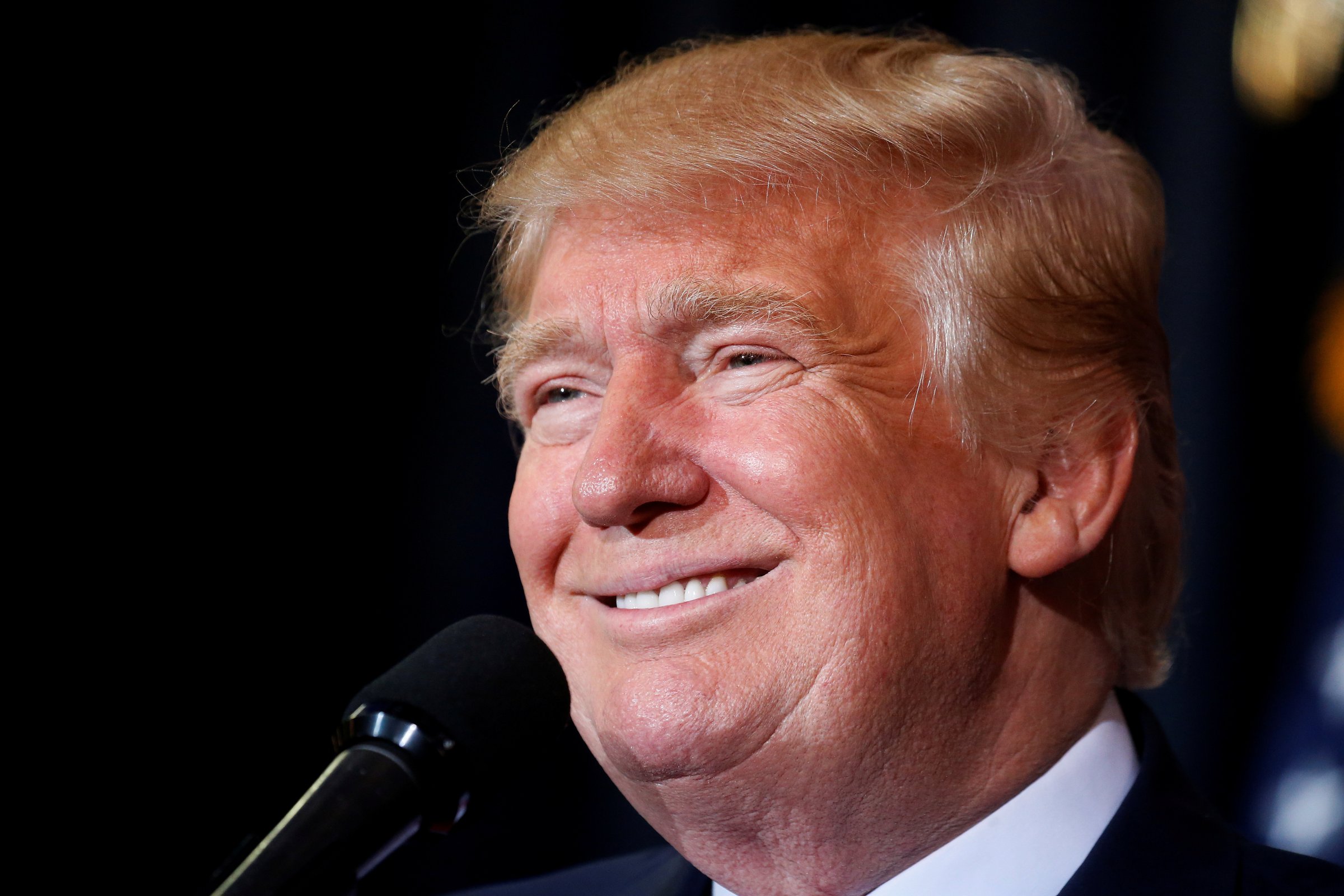
There are few foreign policy topics quite as complicated as the relationship between India and Pakistan, South Asia’s nuclear-armed nemeses. Any world leader approaching the issue even obliquely must surely see the “Handle With Care” label from miles away, given the possibility of nuclear conflict.
U.S. President-elect Donald Trump, however, doesn’t seem to have read the memo, injecting a pronounced element of uncertainty about the position of the world’s only remaining superpower on this most complex of subjects in a call with the Pakistani Prime Minister Nawaz Sharif.
According to a readout of the conversation from the Pakistani authorities, he apparently agreed to visit the country and said he was “ready and willing to play any role that you want me to play to address and find solutions to the outstanding problems.” He reportedly added: “You are a terrific guy. You are doing amazing work which is visible in every way.”
The hilarity of his hyperbole aside, Trump’s intervention could have serious consequences for both regional and global stability.
First, a quick summary: since the British quit the subcontinent in 1947, India and Pakistan have fought four wars, of which three have been over the northern region of Kashmir. Heavily militarized, and divided between the two by a de facto border called the Line of Control (LoC), Kashmir is claimed in its entirety by both New Delhi and Islamabad. With tensions in the region climbing again in recent months, another war, many fear, could potentially go nuclear. Against this backdrop, Washington has a particularly tricky balancing act to negotiate if it is to help maintain stability.
Ties with Islamabad have deteriorated in recent years, with questions about Pakistan’s role in abetting terror groups souring relations. But although military and economic aid to Pakistan has been cut, reflecting U.S. frustration with Islamabad’s support for anti-American insurgent outfits such as the Taliban, the cord hasn’t been severed; Pakistan continues to receive hundreds of millions of dollars in U.S. financial support, and some in Washington question whether America can afford to walk away.
Senator John McCain made this argument in the Financial Times earlier this year, citing the continued US troop presence in nearby Afghanistan. “The U.S. mission in Afghanistan is immeasurably more difficult without Pakistan’s co-operation in taking on terrorists that operate across the Afghan-Pakistani border at will,” he wrote, adding: “Likewise, the strategic imperative for improved relations between the US and Pakistan is clear — for the safety of American troops and the success of their mission in Afghanistan, for the stability of the region and for the national security of both Pakistan and the U.S.”
India — and a growing cohort of voices internationally — would strongly disagree. New Delhi has long blamed Pakistan for sponsoring terrorist attacks on its soil, a charge Islamabad denies. Tensions have spiraled in recent months, after a devastating attack on an Indian military base near the LoC on Sept. 18 that killed several Indian soldiers. India’s Prime Minister Narendra Modi said that the attackers came from Pakistan and, in response, ordered what New Delhi described as a “surgical strike” in Pakistani-controlled Kashmir to take out other “terrorist teams” allegedly poised to enter its territory. Until then, India had been careful not to do anything that might spark a military clash with Islamabad. Although Pakistan denied that the strike even took place, the announcement marked a hardening of the Indian stance.
Low-level fighting between the two around the border area has continued since, with matters escalating on Nov. 29, when a group of heavily armed militants assaulted another Indian army unit, killing at least seven Indian soldiers.
As India reels from the attack, with analysts around the world watching closely for any retaliatory steps that could trigger a full-scale war, the readout of Trump’s call throws up a host of problematic questions. Will Trump’s America openly side with Pakistan on the country’s dispute with India? And where does that leave India, an increasingly important U.S. ally under recent American Presidents? How will India now react to any US attempt to cool tensions between New Delhi and Islamabad?
Only last year, at the beginning of 2015, President Obama became the first American leader to attend India’s annual Republic Day parade, an annual show of India’s military might in the capital New Delhi. It was a strong message from the U.S. leadership that the two countries shared an increasingly close relationship, with deepening economic and military ties.
Washington has clearly been cultivating a regional counterweight to China, India’s powerful northern neighbor. China has noticed, and has correspondingly been building links with Pakistan. In fact, as Obama landed in India, China rolled out the red carpet for Pakistan’s then military chief, who was visiting Beijing. Around the same time, a commentary in the Global Times, a Chinese newspaper with close government ties, warned against what it called the West’s “ulterior motives” in deepening links with India.
Has Trump changed his mind? With so little information about his policy positions, it’s impossible to know. It could be just loose talk. But in this nuclear-armed region, that’s troubling enough.
More Must-Reads from TIME
- Inside Elon Musk’s War on Washington
- Meet the 2025 Women of the Year
- Why Do More Young Adults Have Cancer?
- Colman Domingo Leads With Radical Love
- 11 New Books to Read in Februar
- How to Get Better at Doing Things Alone
- Cecily Strong on Goober the Clown
- Column: The Rise of America’s Broligarchy
Contact us at letters@time.com